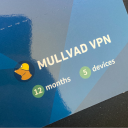Leaderboard
Popular Content
Showing content with the highest reputation on 09/23/22 in all areas
-
The 6.11 release includes bug fixes, update of base packages, update to 5.19.x Linux kernel, and minor feature improvements. Sorry no major new feature but instead we are paying some "technical debt" and laying the groundwork necessary to add better third-party driver and ZFS support. Although, Samba is updated to version 4.17 and we're seeing some significant performance increases. There are other improvements still a work-in-process which we will publish in patch releases: better support for third-party drivers better macOS integration better Active Directory integration additional VM Manager improvements To upgrade: First create a backup of your USB flash boot device: Main/Flash/Flash Backup If you are running any 6.4 or later release, click 'Check for Updates' on the Tools/Update OS page. If you are running a pre-6.4 release, click 'Check for Updates' on the Plugins page. If the above doesn't work, navigate to Plugins/Install Plugin, select/copy/paste this plugin URL and click Install: https://unraid-dl.sfo2.cdn.digitaloceanspaces.com/stable/unRAIDServer.plg Bugs: If you discover a bug or other issue in this release, please open a Stable Releases Bug Report. ALL USERS are encouraged to upgrade. As always, prior to updating, create a backup of your USB flash device: "Main/Flash/Flash Device Settings" - click "Flash Backup". Special thanks to all our beta testers and especially: @bonienl for his continued refinement and updating of the Dynamix webGUI including new background downloading functionality. @Squid for continued refinement of Community Apps and associated feed. @dlandon for continued refinement of Unassigned Devices plugin and patience as we change things under the hood. @ich777 for assistance and passing on knowledge of Linux kernel config changes to support third party drivers and other kernel-related functionality via plugins. Also for working with us for better third-party driver integration (still a work-in-process). @SimonF for several improvements including better handling of USB assignments to Virtual Machines. @JorgeB for rigorous testing of storage subsystem Version 6.11.0 2022-09-23 Improvements With this release there have been many base package updates including several CVE mitigations. The Linux kernel update includes mitigation for Processor MMIO stale-data vulnerabilities. The plugin system has been refactored so that 'plugin install' can proceed in the background. This alleviates issue where a user may think installation has crashed and closes the window, when actually it has not crashed. Many other webGUI improvements. Added support for specifying custom VNC ports in VM manager form editor. Custom port number specified using XML editor will be preserved when switching to forms-based editor. Spin down for non-rotational devices now places those devices in standby mode if supported by the device. Similarly, spin up, or any I/O to the device will restore normal operation. Display NVMe device capabilities obtained from SMART info. Added necessary kernel CONFIG options to support Sr-iov with mellanox connectx4+ cards Merged Dynamix SSD Trim plugin into Unraid OS webGUI. Preliminary support for cgroup2. Pass 'unraidcgroup2' on syslinux append line to activate. Included perl in base distro. Bug fixes Fixed issue in VM manager where VM log can not open when VM name has an embedded '#' character. Fixed issue where Parity check pause/resume on schedule was broken. Fixed issue installing registration keys. Updated 'samba' to address security mitigations. Also should get rid of kernel message complaining about "Attempt to set a LOCK_MAND lock via flock(2)." Fixed issue switching from 'test' branch to 'next'. Quit trying to spin down devices which do not support standby mode. Fixed AD join issued caused by outdated cyras-sasl library Do not start mcelog daemon if CPU is unsupported (most AMD processors). Fix nginx not recognizing SSL certificate renewal. wireguard: check the reachability of the gateway (next-hop) before starting the WG tunnel. Ignore "ERROR:" strings mixed in "btrfs filesystem show" command output. This solves problem where libblkid could tag a parity disk as having btrfs file system because the place it looks for the "magic number" happens to matches btrfs. Subsequent "btrfs fi" commands will attempt to read btrfs metadata from this device which fails because there really is not a btrfs filesystem there. Fixed bug in mover that prevented files from being moved from unRAID array to a cache pool (mode Prefer) if the share name contains a space. Change Log vs. Unraid OS 6.10.3 Management: Add sha256 checks of un-zipped files in unRAIDServer.plg. bash: in /etc/profile omit "." (current directory) from PATH docker: do not call 'docker stop' if there are no running containers emhttpd: improve standby (spinning) support mover: fixed issue preventing moving filed from array to cache if share name contains a space rc.nginx: enable OCSP stapling on certs which include an OCSP responder URL rc.nginx: compress 'woff' font files and instruct browser to cache rc.wireguard: add better troubleshooting for WireGuard autostart rc.S: support early load of plugin driver modules SMB: fixed 'fruit' settings for the USB Flash boot device SMB: remove NTLMv1 support since removed from Linux kernel SMB: (temporarily) move vfs_fruit settings into separate /etc/samba/smb-fruit.conf file SMB: (temporarily) get rid of Samba 'idmap_hash is deprecated' nag lines startup: Prevent installing downgraded versions of packages which might exist in /boot/extra upc: version v1.3.0 webgui: Plugin system update Detach frontend and backend operation Use nchan as communication channel Allow window to be closed while backend continues Use SWAL as window manager Added multi remove ability on Plugins page Added update all plugins with details webgui: docker: use docker label as primary source for WebUI This makes the 'net.unraid.docker.webui' docker label the primary source when parsing the web UI address. If the docker label is missing, the template value will be used instead. webgui: Update Credits.page webgui: VM manager: Fix VM log can not open when VM name has an embedded '#' webgui: Management Access page: add details for self-signed certs webgui: Parity check: fix regression error webgui: Remove session creation in scripts webgui: Update ssh key regex Add support for ed25519/sk-ed25519 Remove support for ecdsa (insecure) Use proper regex to check for valid key types webgui: misc. style updates webgui: Management access: HTTP port setting should always be enabled webgui: Fix: preserve vnc port settings webgui: Fix regression error in plugin system webgui: Fix issue installing registration keys webgui: Highlight case selection when custom image is selected webgui: fix(upc): v1.4.2 apiVersion check regression webgui: Update Disk Capabilities pages for NVME drives webgui: chore(upc): v1.6.0 webgui: Plugin system and docker update webgui: System info - style update webgui: Plugins: keep header buttons in same position webgui: Prevent overflow in container size for low resolutions webgui: VM Manager: Add boot order to GUI and CD hot plug function webgui: Docker Manager: add ability to specify shell with container label. webgui: fix: Discord notification agent url webgui: Suppress info icon in banner message when no info is available webgui: Add Spindown message and use -n for identity if scsi drive. webgui: Fix SAS Selftest webgui: Fix plugin multi updates webgui: UPS display enhancements: Add icon for each category Add translation in UPS section on dashboard Add Output voltage / frequency value Add coloring depending on settings Normalize units Make updates near real-time Added UPS model field webgui: JQuery: version 3.6.1 webgui: JQueryUI: version 1.13.2 webgui: improved 'cache busting' on font file urls webgui: Fixed: text color in docker popup window sometimes wrong webgui: Fixed: show read errors during Read Check webgui: VM Manager: Add USB Startup policy; add Missing USB support webgui: Docker: fixed javascript error when no containers exist webgui: added 3rd party system diagnostics added diagnostics for third party plugin packages added diagnostics for /dev/dri devices added diagnostics for /dev/dvb devices added diagnostics for nvidia devices Linux kernel: version 5.19.9 (CVE-2022-21123 (CVE-2022-21123 CVE-2022-21125 CVE-2022-21166) md/unraid: version 2.9.24 CONFIG_IOMMU_DEFAULT_PASSTHROUGH: Passthrough CONFIG_VIRTIO_IOMMU: Virtio IOMMU driver CONFIG_X86_AMD_PSTATE: AMD Processor P-State driver CONFIG_FIREWIRE: FireWire driver stack CONFIG_FIREWIRE_OHCI: OHCI-1394 controllers CONFIG_FIREWIRE_SBP2: Storage devices (SBP-2 protocol) CONFIG_FIREWIRE_NET: IP networking over 1394 CONFIG_INPUT_UINPUT: User level driver support CONFIG_INPUT_JOYDEV: Joystick interface CONFIG_INPUT_JOYSTICK: Joysticks/Gamepads CONFIG_JOYSTICK_XPAD: X-Box gamepad support CONFIG_JOYSTICK_XPAD_FF: X-Box gamepad rumble support CONFIG_JOYSTICK_XPAD_LEDS: LED Support for Xbox360 controller 'BigX' LED CONFIG_MLX5_TLS: Mellanox Technologies TLS Connect-X support CONFIG_MLX5_ESWITCH: Mellanox Technologies MLX5 SRIOV E-Switch suppor CONFIG_MLX5_CLS_ACT: MLX5 TC classifier action support CONFIG_MLX5_TC_SAMPLE: MLX5 TC sample offload support CONFIG_MLXSW_SPECTRUM: Mellanox Technologies Spectrum family support CONFIG_NET_SWITCHDEV: Switch (and switch-ish) device support CONFIG_TLS: Transport Layer Security support CONFIG_TLS_DEVICE: Transport Layer Security HW offload CONFIG_TLS_TOE: Transport Layer Security TCP stack bypass CONFIG_VMD: Intel Volume Management Device Driver added additional sensor drivers: CONFIG_AMD_SFH_HID: AMD Sensor Fusion Hub CONFIG_SENSORS_AQUACOMPUTER_D5NEXT: Aquacomputer D5 Next watercooling pump CONFIG_SENSORS_MAX6620: Maxim MAX6620 fan controller CONFIG_SENSORS_NZXT_SMART2: NZXT RGB & Fan Controller/Smart Device v2 CONFIG_SENSORS_SBRMI: Emulated SB-RMI sensor CONFIG_SENSORS_SHT4x: Sensiron humidity and temperature sensors. SHT4x and compat. CONFIG_SENSORS_SY7636A: Silergy SY7636A CONFIG_SENSORS_INA238: Texas Instruments INA238 CONFIG_SENSORS_TMP464: Texas Instruments TMP464 and compatible CONFIG_SENSORS_ASUS_WMI: ASUS WMI X370/X470/B450/X399 CONFIG_SENSORS_ASUS_WMI_EC: ASUS WMI B550/X570 CONFIG_SENSORS_ASUS_EC: ASUS EC Sensors patch: add reference to missing firmware in drivers/bluetooth/btrtl.c rtl8723d_fw.bin rtl8761b_fw.bin rtl8761bu_fw.bin rtl8821c_fw.bin rtl8822cs_fw.bin rtl8822cu_fw.bin CONFIG_BPF_UNPRIV_DEFAULT_OFF: Disable unprivileged BPF by default patch: quirk for Team Group MP33 M.2 2280 1TB NVMe (globally duplicate IDs for nsid) turn on all IPv6 kernel options: CONFIG_INET6_* CONFIG_IPV6_* CONFIG_RC_CORE: Remote Controller support CONFIG_SFC_SIENA: Solarflare SFC9000 support CONFIG_SFC_SIENA_MCDI_LOGGING: Solarflare SFC9000-family MCDI logging support CONFIG_SFC_SIENA_MCDI_MON: Solarflare SFC9000-family hwmon support CONFIG_SFC_SIENA_SRIOV: Solarflare SFC9000-family SR-IOV support CONFIG_ZRAM: Compressed RAM block device support CONFIG_ZRAM_DEF_COMP_LZ4: Default ram compressor (lz4) turn on all EDAC kernel options CONFIG_EDAC: EDAC (Error Detection And Correction) reporting CONFIG_EDAC_* Base distro: aaa_base: version 15.1 aaa_glibc-solibs: version 2.36 aaa_libraries: version 15.1 at: version 3.2.3 bind: version 9.18.6 btrfs-progs: version 5.19.1 ca-certificates: version 20220622 cifs-utils: version 7.0 coreutils: version 9.1 cracklib: version 2.9.8 cryptsetup: version 2.5.0 curl: version 7.85.0 cyrus-sasl: version 2.1.28 dbus: version 1.14.0 dhcpcd: version 9.4.1 dmidecode: version 3.4 docker: version 20.10.17 (CVE-2022-29526 CVE-2022-30634 CVE-2022-30629 CVE-2022-30580 CVE-2022-29804 CVE-2022-29162 CVE-2022-31030) etc: version 15.1 ethtool: version 5.19 eudev: version 3.2.11 file: version 5.43 findutils: version 4.9.0 firefox: version 105.0.r20220922151854-x86_64 (AppImage) fuse3: version 3.12.0 gawk: version 5.2.0 gdbm: version 1.23 git: version 2.37.3 glib2: version 2.72.3 glibc: version 2.36 glibc-zoneinfo: version 2022c gnutls: version 3.7.7 gptfdisk: version 1.0.9 grep: version 3.8 gzip: version 1.12 hdparm: version 9.65 htop: version 3.2.1 icu4c: version 71.1 inotify-tools: version 3.22.6.0 iperf3: version 3.11 iproute2: version 5.19.0 iptables: version 1.8.8 jemalloc: version 5.3.0 json-c: version 0.16_20220414 json-glib: version 1.6.6 kmod: version 30 krb5: version 1.20 libaio: version 0.3.113 libarchive: version 3.6.1 libcap-ng: version 0.8.3 libcgroup: version 3.0.0 libdrm: version 2.4.113 libepoxy: version 1.5.10 libffi: version 3.4.2 libgcrypt: version 1.10.1 libgpg-error: version 1.45 libidn: version 1.41 libjpeg-turbo: version 2.1.4 libmnl: version 1.0.5 libnetfilter_conntrack: version 1.0.9 libnfnetlink: version 1.0.2 libnftnl: version 1.2.3 libnl3: version 3.7.0 libpng: version 1.6.38 libssh: version 0.10.4 libtasn1: version 4.19.0 libtirpc: version 1.3.3 liburcu: version 0.13.1 libusb: version 1.0.26 libwebp: version 1.2.4 libxml2: version 2.9.14 libxslt: version 1.1.36 libzip: version 1.9.2 logrotate: version 3.20.1 lsof: version 4.95.0 lzip: version 1.23 mc: version 4.8.28 mcelog: version 189 nano: version 6.4 nfs-utils: version 2.6.2 nghttp2: version 1.49.0 nginx: version 1.22.0 ntfs-3g: version 2022.5.17 ntp: version 4.2.8p15 oniguruma: version 6.9.8 openssh: version 9.0p1 openssl: version 1.1.1q (CVE-2022-1292 CVE-2022-2097 CVE-2022-2274) openssl-solibs: version 1.1.1q (CVE-2022-1292) p11-kit: version 0.24.1 pciutils: version 3.8.0 pcre2: version 10.40 perl: version 5.36.0 php: version 7.4.30 (CVE-2022-31625 CVE-2022-31626) pkgtools: version 15.1 rpcbind: version 1.2.6 rsync: version 3.2.6 samba: version 4.17.0 (CVE-2022-2031 CVE-2022-32744 CVE-2022-32745 CVE-2022-32746 CVE-2022-32742) sqlite: version 3.39.3 sudo: version 1.9.11p3 sysfsutils: version 2.1.1 sysstat: version 12.6.0 sysvinit-scripts: version 15.1 talloc: version 2.3.4 tar: version 1.34 tevent: version 0.13.0 tree: version 2.0.2 util-linux: version 2.38.1 wayland: version 1.21.0 wget: version 1.21.3 xfsprogs: version 5.18.0 xz: version 5.2.6 zlib: version 1.2.1212 points
-
Recompiled the drivers and they are now just working fine (to get it working scroll down): Please do the following (this is only necessary if you upgraded before I recompiled the driver): Open up a Unraid terminal and execute: rm -f /boot/config/plugins/nvidia-driver/packages/5.19.9/* Close the terminal Go to the Nvidia-Driver Plugin page Click on the button "Update & Download" (please wait until the download finished and the Done button is displayed) Reboot Again, sorry for the inconvenience...8 points
-
Updated two servers to 6.11.0 without incident. One from 6.11.0-rc5 and another from 6.10.3. I was aware the Nerd Pack was deprecated for 6.11.0 and placed the necessary packages in /boot/extra before upgrading and rebooting. I am not sure that everyone is aware the Nerd Pack has been deprecated and how to load the necessary packages. It might be wise to include this in the release notes (as if everyone reads those 😀).8 points
-
Everything is now working again, to get up and running please see this post: @Gorosch, @Dave31337, @jvlarc, @musicking, @Lintux7 points
-
I'm currently spinning up my build VM and compiling the drivers again, currently drivers for 6.11.0 stable are not available...7 points
-
This should be added in bold text to the changelog including instructions how to load the necessary packages !!!7 points
-
6 points
-
5 points
-
4 points
-
Update from RC4 to Stable...... Now my Nvidia is not detected. This pops up every seconds in system log. Sep 23 20:51:44 Unraid kernel: NVRM: 0000:41:00.0: DMA mapping request too large! Sep 23 20:51:44 Unraid kernel: NVRM: 0000:41:00.0: DMA mapping request too large! Sep 23 20:51:44 Unraid kernel: NVRM: GPU 0000:41:00.0: RmInitAdapter failed! (0x31:0x40:2459) Sep 23 20:51:44 Unraid kernel: NVRM: GPU 0000:41:00.0: rm_init_adapter failed, device minor number 0 Sep 23 20:51:45 Unraid kernel: NVRM: 0000:41:00.0: DMA mapping request too large! Sep 23 20:51:45 Unraid kernel: NVRM: 0000:41:00.0: DMA mapping request too large! Sep 23 20:51:45 Unraid kernel: NVRM: GPU 0000:41:00.0: RmInitAdapter failed! (0x31:0x40:2459) Sep 23 20:51:45 Unraid kernel: NVRM: GPU 0000:41:00.0: rm_init_adapter failed, device minor number 0 Sep 23 20:51:45 Unraid kernel: NVRM: 0000:41:00.0: DMA mapping request too large! Sep 23 20:51:45 Unraid kernel: NVRM: 0000:41:00.0: DMA mapping request too large! Sep 23 20:51:45 Unraid kernel: NVRM: GPU 0000:41:00.0: RmInitAdapter failed! (0x31:0x40:2459) Sep 23 20:51:45 Unraid kernel: NVRM: GPU 0000:41:00.0: rm_init_adapter failed, device minor number 0 Sep 23 20:51:45 Unraid kernel: NVRM: 0000:41:00.0: DMA mapping request too large! Sep 23 20:51:45 Unraid kernel: NVRM: 0000:41:00.0: DMA mapping request too large! Sep 23 20:51:45 Unraid kernel: NVRM: GPU 0000:41:00.0: RmInitAdapter failed! (0x31:0x40:2459) Sep 23 20:51:45 Unraid kernel: NVRM: GPU 0000:41:00.0: rm_init_adapter failed, device minor number 03 points
-
2 points
-
2 points
-
@limetech@JorgeB I can confirm Unraid OS 6.11.0 has restored the functionality of the SFN5322F adapter. Thank you!2 points
-
Swapped out RAM, still didn't resolve the issue - so was looking at replacing the MB next. As it was advised above to replace my controller (SATA port multiplier) I took a punt with this first. Low & behold this cracked it, was able to run a parity check in one go without a system crash. Well chuffed. So it looks like whilst unlikely, it was the dodgy controller card causing the issue. Thanks to those who posted suggestions. This was the card I went for, based upon the AMS1166 chipset as advised in the recommended controller post. I dont have a x4 slot on the MB so had to go with the x1. That said the speed of this thing compared to my older dodgy card is a big jump (parity check went from around 36MB/s to 100MB/s) https://www.amazon.co.uk/dp/B097RBLM9G?ref_=pe_27063361_487360311_302_E_DDE_dt_12 points
-
Version 6.11.0-rc5 2022-09-12 Bug fixes Ignore "ERROR:" strings mixed in "btrfs filesystem show" command output. This solves problem where libblkid could tag a parity disk as having btrfs file system because the place it looks for the "magic number" happens to matches btrfs. Subsequent "btrfs fi" commands will attempt to read btrfs metadata from this device which fails because there really is not a btrfs filesystem there. Base distro: cracklib: version 2.9.8 curl: version 7.85.0 ethtool: version 5.19 fuse3: version 3.12.0 gawk: version 5.2.0 git: version 2.37.3 glibc-zoneinfo: version 2022c grep: version 3.8 hdparm: version 9.65 krb5: version 1.19.3 libXau: version 1.0.10 libXfont2: version 2.0.6 libXft: version 2.3.6 libdrm: version 2.4.113 libfontenc: version 1.1.6 libglvnd: version 1.5.0 libssh: version 0.10.4 libtasn1: version 4.19.0 mcelog: version 189 nghttp2: version 1.49.0 pkgtools: version 15.1 rsync: version 3.2.6 samba: version 4.16.5 sqlite: version 3.39.3 Linux kernel: version 5.19.7 CONFIG_BPF_UNPRIV_DEFAULT_OFF: Disable unprivileged BPF by default CONFIG_SFC_SIENA: Solarflare SFC9000 support CONFIG_SFC_SIENA_MCDI_LOGGING: Solarflare SFC9000-family MCDI logging support CONFIG_SFC_SIENA_MCDI_MON: Solarflare SFC9000-family hwmon support CONFIG_SFC_SIENA_SRIOV: Solarflare SFC9000-family SR-IOV support patch: quirk for Team Group MP33 M.2 2280 1TB NVMe (globally duplicate IDs for nsid) turn on all IPv6 kernel options CONFIG_INET6_* CONFIG_IPV6_* Management: SMB: remove NTLMv1 support since removed from Linux kernel startup: Prevent installing downgraded versions of packaages which might exist in /boot/extra webgui: VM Manager: Add boot order to GUI and CD hot plug function webgui: Docker Manager: add ability to specify shell with container label. webgui: fix: Discord notification agent url webgui: Suppress info icon in banner message when no info is available webgui: Add Spindown message and use -n for identity if scsi drive. webgui: Fix SAS Selftest webgui: Fix plugin multi updates2 points
-
Powertop [Support auf Deutsch] Powertop is an Intel tool (yes, works for AMD, too) to check power consumption states of sata, pcie, usb, etc devices. You can download powertop as follows, then restart your server and it will be automatically installed: mkdir /boot/extra cd /boot/extra wget https://github.com/mgutt/unraid-packages/raw/main/6.11.0/powertop-2.15-x86_64-1.txz Then open your terminal and execute: powertop Now press "TAB" until you reach "Idle Stats" and check your CPU Pkg (HW). Depending of the brand and model of your CPU you can reach different C-States. If your system isn't optimized, you will see this: If you press "TAB" you will see additional information about standby states of different hardware components of your system. In the tab "Tunables" you will see multiple devices which have the state "Bad", which means powertop found devices which do not allow standby/sleep states: Now you can execute the following command to optimize this: WARNING Many SATA controllers (JMB xxx or ASM xxxx) do not support link power management and your disks loose connection after reaching spindown! Read further before executing --auto-tune! powertop --auto-tune &>/dev/null By that all compents will return "Good": Now, your server should reach better C-States. Package C-States This table shows the dependency between CPU Core and CPU Package C-States: Several things are important to reach Package (Pkg) C-States C3, C7, C9 or even C10: Accurate power measurement - do some research how accurate your power meter is (UPS integrated power meters are usually bad) - close your Unraid WebGUI and wait 1 minute! (this closes many background jobs, which cost your energy, use your PC's terminal and "ssh root@tower" to monitor your C-States with powertop) - don't use Unraid in GUI mode (you should avoid this mode, if you want low power consumption) Powertop shows only C1, C2 and C3 Pgk-States This happens if powertop does not recognize your CPU (happens for most AMD CPUs and recent Intel CPUs). Your CPU could still reach C9 or even C10, but powertop is not able to obtain this and shows only C3. BIOS - only Gigabyte 8th or 9th Intel: enable CEC2019 - enable ASPM (Active-State Power Management) in the PCI settings - enable all C-States like C7/C9/C10 in the CPU settings ("auto" usually means "disabled", so select "enable") - disable Audio - disable RGB LED controller - disable Turbo in the CPU settings PCIe cards Some PCIe cards prevent states other than C0 or C3 (Intel). As an example my Qnap Aquantia 10G card allowed only C3 while all my Intel 10G cards allowed C7. Without any installed card I'm able to reach C10. iGPU Install the iGPU driver plugin through unRAID Apps if your CPU has an iGPU hpet Set hpet=disable as a Kernel setting if you have an 8th, 9th or 10th Intel CPU as there is a bug which can cause crashes (shouldn't be necessary anymore since unRAID 6.10) CPU governor Use the tips & tweaks Plugin to set the CPU governor to "powersave" or use the below commands in the Go file. 10G networking SFP+ DAC consumes less power than SFP+ SR/LR and both less than 10G RJ45. Depending on your internet connection the most efficient scenario is not to use a 10G switch. Instead directly connect your client with your server and use a second 1G cable to connect with your internet router. By that your 10G controller/card goes to sleep while your client is powered off. In comparison an active connection to a 10G switch never allows sleep states. MTU Surprisingly a user was not able to reach any C-State other than C1E after setting the MTU to 9000. SATA Controller Some mainboards or pcie cards provide SATA ports through an additional SATA controller. Sadly some of the most popular and usually well supported JMB xxx and ASM xxxx controllers have an incompatibility to "powertop --auto-tune" because it sets all SATA ports to "med_power_with_dipm". To bypass this problem, you should not use "powertop --auto-tune". Instead read the "Commands" paragraph to set the commands manually. Then you can remove the line with the "med_power_with_dipm" setting or you can set each hostX individually. Example: # Enable SATA link power management (this skips SATA host3 and host4) echo med_power_with_dipm | tee /sys/class/scsi_host/host1/link_power_management_policy echo med_power_with_dipm | tee /sys/class/scsi_host/host2/link_power_management_policy echo med_power_with_dipm | tee /sys/class/scsi_host/host5/link_power_management_policy echo med_power_with_dipm | tee /sys/class/scsi_host/host6/link_power_management_policy If you are using the ASM1166 you could even try to update the firmware. NVMe A user found out that a specific NVMe SSD allowed only C2, while with a Samsung Evo Plus the system reached C10. Power supply An unnecessary high-power and/or inefficient power supply can raise the power consumption by 5 to 15W. Choose wisely: - as low power (watt) as possible - as efficient as possible (like Titanium grade) - avoid dual power supply setups (server grade hardware is not build for efficiency) If you plan to build a setup with extremely low power consumption, consider these power supplies: - PicoPSU (up to 200 watts, but is limited to ~4 SSDs as it has low 5V output) - Corsair RM550x (2021) (this looses only 1 watt more than a PicoPSU at 10W to 20W load!) - BeQuiet Pure Power 11 FM 550W (similar to the Corsair, but 2 watts more than a PicoPSU, but cheaper than the Corsair) Notes: - As of writing this post all other power supplies are much more inefficient. So don't think for example a Corsair SF450 is more efficient than the Corsair RM550x (2021) although the former is Platinum grade . It's not. I have both and the Platinum looses 4W more at 10W load. The reason is that some of the most recent power supplies include a new technology to reach the future ATX12VO standard, which has the requirement of being extremely efficient at low loads. For example Seasonic told me in 06/2022 that power supplies for ATX12VO are still in development. - An HDD can consume up to 30W if you switch on your server, but in this state the other server components do not reach their maximum load. So summarize wisely to obtain the correct power supply size. - Do not buy the Corsair / BeQuiet if you don't reach a power consumption under 30W: Above this, usual Platinum / Titanium power supplies are more efficient. Commands Instead of using "powertop --auto-tune" you could add the following power-saving commands to your /boot/config/go file (stop your array and execute them through your terminal to test them first) with the Config File Editor Plugin: # ------------------------------------------------- # Set power-efficient CPU governor # ------------------------------------------------- /etc/rc.d/rc.cpufreq powersave # ------------------------------------------------- # Disable CPU Turbo # ------------------------------------------------- [[ -f /sys/devices/system/cpu/intel_pstate/no_turbo ]] && echo "1" > /sys/devices/system/cpu/intel_pstate/no_turbo [[ -f /sys/devices/system/cpu/cpufreq/boost ]] && echo "0" > /sys/devices/system/cpu/cpufreq/boost # ------------------------------------------------- # Enable power-efficient ethernet # ------------------------------------------------- # enable IEEE 802.3az (Energy Efficient Ethernet): Could be incompatible to LACP bonds! for i in /sys/class/net/eth?; do dev=$(basename $i); [[ $(echo $(ethtool --show-eee $dev 2> /dev/null) | grep -c "Supported EEE link modes: 1") -eq 1 ]] && ethtool --set-eee $dev eee on; done # Disable wake on lan for i in /sys/class/net/eth?; do ethtool -s $(basename $i) wol d; done # ------------------------------------------------- # powertop tweaks # ------------------------------------------------- # Enable SATA link power management echo med_power_with_dipm | tee /sys/class/scsi_host/host*/link_power_management_policy # Runtime PM for I2C Adapter (i915 gmbus dpb) echo auto | tee /sys/bus/i2c/devices/i2c-*/device/power/control # Autosuspend for USB device echo auto | tee /sys/bus/usb/devices/*/power/control # Runtime PM for disk echo auto | tee /sys/block/sd*/device/power/control # Runtime PM for PCI devices echo auto | tee /sys/bus/pci/devices/????:??:??.?/power/control # Runtime PM for ATA devices echo auto | tee /sys/bus/pci/devices/????:??:??.?/ata*/power/control Note: EEE can cause problems with 2.5G Intel Ethernet. Config File Editor: Debugging Here are some helpful terminal commands. Spin down all disks (Unraid only) for dev in /dev/sd?; do /usr/local/sbin/emcmd cmdSpindown="$(grep -zoP "(?<=name=\")[a-z0-9]+(?=\"\ndevice=\"${dev: -3})" /var/local/emhttp/disks.ini | tr -d '\0')"; done Obtain ASPM status of all devices: lspci -vv | awk '/ASPM/{print $0}' RS= | grep --color -P '(^[a-z0-9:.]+|ASPM )' Watch CPU frequency: watch -n3 "cpufreq-info | grep 'current CPU'"1 point
-
While your working on things I'd also install the Dynamix File Manager. Must simpler than using the Krusader docker. Its also available on every page on the GUI.1 point
-
1 point
-
1 point
-
1 point
-
1 point
-
Have you started a thread in General Support and uploaded your diagnostics.zip (from Tools -> Diagnostics) ?1 point
-
Same issue for me and a friend. I upgraded from 6.11-rc5 to 6.11 final, and GPU can't be find now.1 point
-
1 point
-
Expected behavior because a delay set on a docker container does not apply to starting that container. It is a delay that will be applied after the container starts to delay the start of the next container. So, yes, it is more useful on boot when multiple containers are loading. Probably on a stop and start of the Docker service as well.1 point
-
Same thing with my Nvidia card I also would like to know what to do without the Nerd Pack. Guess I'm downgrading for now1 point
-
1 point
-
Issue is resolved as my server has been running smooth for the last week. C-states were disabled, but I didn't match the memory speed to the number of sticks I had. I kind of got greedy trying to have the max speed from the DIMMs over the stability of the server. Thanks! Edit: This also addressed the execution errors with Docker1 point
-
I am currently running Unraid 6.9.2. Can I make the upgrade directly to 6.11.0, or do I need to go to 6.10.3 first? I was holding the upgrade to 6.10.3 because I saw there were some issues with SQLite and PLEX/Sonarr/Radarr/etc, are these fixed?1 point
-
Thanks, On Unraid: Stop the Machinaris container from Unraid Admin UI | Docker tab. From the Unraid Console, delete all the database files with: rm -f /mnt/user/appdata/machinaris/machinaris/dbs/*.db Start the Machinaris container from Unraid Admin UI | Docker tab. Wait 10-15 minutes for data to re-populate, then browse to http://UNRAID_TOWER_NAME:8926 Did this and it worked.1 point
-
Lets go, I did this to-do list. AND IT WORKS. Thanks a lot even if we didnt know where was the problem. Have a good day!1 point
-
Can you try to run it deleting the --gpus=all entry on extra parameters?1 point
-
Disk dropped offline, looks more like a power/connection problem.1 point
-
1 point
-
I got it working! Turns out the card0 is the AST2500, and for some reason even though the 5700xt was showing up fine in lspci and in unraid "system devices" it wasn't showing up in /dev/dri. After swapping around a lot of bios settings, I now have card0 showing up (AST2500) and card1 (5700xt) both showing up, and am able to pass card1 to containers. /dev/dri/renderd128 now also shows up for vaapi encoding. This IPMI is very finicky. The bios settings I changed were: SR-IOV Support: disabled Prioritize onboard video instead of PCIe: enabled Onboard VGA: from [Auto] to enabled (enabled for some reason is required for the OS to recognize the 5700xt, but also makes the machine take about 2 minutes to post and start displaying video, very odd. I also don't have access to IPMI remote control, which kind of sucks but at least GPU is recognized.)1 point
-
Marked as solved, I haven't seen the btrfs error after the scrub and a reboot. I will open a separate ticket for the permissions problems.1 point
-
What you mean by easiest could be interpreted in many ways. If you like to use ssh and do things, https://command-not-found.com/mktorrent If you like to create them with a GUI, probably rtorrent with rutorrent webui - i think binhex has a version with included vpn options & proxy stuff which might come in handy if you were to be the initial distributor.1 point
-
Awesome I was able to install the card and hook the drives up to it and it’s all working great. Thanks so much!1 point
-
Borgbackup provide a binary that seems to work https://github.com/borgbackup/borg/releases wget https://github.com/borgbackup/borg/releases/download/1.2.2/borg-linux64 /boot/config/borg-linux64 Run these and also add them to /boot/config/go cp /boot/config/borg-linux64 /usr/local/sbin/borg chmod +x /usr/local/sbin/borg Alternative you could use something like the borgmatic docker, mount whatever paths you need borg to have access to, and run your commands from the docker's console or using "docker exec"1 point
-
simple, left click syncthing, edit something, edit it back to what it was, scroll to the bottom and click on apply, this will delete the container freeing up space.1 point
-
1 point
-
Sadly the nordlynx container is leaking DNS as long as the DNS Parameter is not set. See https://github.com/bubuntux/nordlynx/issues/67 and https://github.com/bubuntux/nordlynx/pull/96 Maybe this can be added to the template.1 point
-
Hello, thanks for this docker. I've just finished setting it up, and wanted to share a possible workaround for the issue mentioned here: https://github.com/binhex/arch-rclone/issues/1 Note: while I am familiar with docker/linux/unraid, I am by no means an expert - there is likely a better way to do what I am doing, so don't hesitate to improve on this approach, or tell me why it's a bad idea. In short, I set my docker up to not copy or sync anything in the start.sh script, and instead utilize a user script to do my syncing. After setting up the docker as normal, I changed the following parameters in the container: RCLONE_MEDIA_SHARES is now set to a single sub-folder in /media as it causes an error if empty, but the actual folder doesn't matter as I don't sync it this way RCLONE_SLEEP_PERIOD is set to 30d, but any long duration should work RCLONE_USER_FLAGS is set to "--dry-run". This is what prevents the start script from doing any actual syncing RCLONE_POST_CHECK and ENABLE_WEBUI are both set to "no", as I don't use these With this configuration, I created a user script with the following: #!/bin/bash docker exec binhex-rclone sh -c "if [ ! -f /home/nobody/.config/rclone/rclone.conf ]; then ln -s /config/rclone/config/rclone.conf /home/nobody/.config/rclone/rclone.conf; fi" docker exec binhex-rclone sh -c "rclone sync -P /media/folder remote:Pictures" The first docker exec line creates a link for the config file so that the second line can run (only if the desired config file does not already exist). The second docker exec line calls the docker container and runs a sync command that syncs the folder "folder" from the media path (replace with your appropriate folder name) to the remote destination "remote:Pictures". For me, this creates the contents of /media/folder in my Pictures folder on my remote destination, and not in a "media" folder. So, if I have a folder called "holiday" inside of /media/folder and I run this script, it will create a corresponding folder on onedrive (my remote) inside the Pictures folder there. Meaning: /media/folder/holiday becomes onedrive:Pictures/holiday I only just got this working, but my intent is to set the script to run on a schedule (daily).1 point
-
1 point
-
如果是5.15内核不够新的问题,可以尝试一下thor2002ro的固件,用了5.18的内核了。 https://github.com/thor2002ro/unraid_kernel1 point
-
https://forums.unraid.net/topic/113367-intel-12th-generation-alder-lake-hybrid-cpu/1 point
-
I've successfully setup ONLYOFFICE to work in my self hosted Nextcloud instance. Like many others here I use NginxProxyManager to setup reverse proxy and get a certificate from Let's Encrypt for my subdomains. As already mentioned here you don't need to create any config files and copying certificate and private key to a newly created folder certs in appdata ...... I think anyone who added at least one proxy host to NginxProxyManager with SSL certificate from Let's Encrypt pointing to the newly created subdomain will be able to configure OnlyOffice Document Server to work properly with Nextcloud. If not I will gladly provide some assistance. My main intention here is creating a brief HOW TO in order to restrict the access to ONLYOFFICE Document Server (for security reasons and data integrity) with encrypted signature, known as Secret Key. Let me emphasize that I don't own the credit for this tutorial, I'm just posting something found among user comments in @SpaceInvaderOne YouTube video tutorial How to Install and Integrate Only Office with Nextcloud. Many, many thanks to @SpaceInvaderOne for providing great tutorials for us "nerds" and make our experience with unRAID easier. HOW TO add and configure Secret Key in ONLYOFFICE: Stop the OnlyOffice Document Server container. In the "edit" option for the OnlyOffice Document Server docker, do "+ Add another Path, Port, Variable, Label or Device". Config Type: Variable Name: JWT_ENABLED (can be whatever you want to see in the UI, I used the key) Key: JWT_ENABLED Value: true Description: Enables use of Secret key [press ADD] Then add another variable: Config Type: Variable Name: JWT_SECRET (same thing, up to you) Key: JWT_SECRET Value: [WhateverSecretKeyYouWantToUse]. You can use the following command in Terminal (without quotes) to create a random Secret Key: "openssl rand -base64 48" and press Enter Description: Defines the Secret key value [press ADD] [press APPLY] Start OnlyOffice Document Server container. Go to Nextcloud > Settings > ONLYOFFICE page. Enter the Secret Key and click Save (you should get the message: Settings have been successfully updated ..... No restart of the Nextcloud docker was needed.1 point
-
Is there anyway for Dynamix System Temp to monitor dual Xeon CPUs? In the System Temp menu under "Processor Temperature" I see all 24 cores and the "CPU Temp". I tried to change the "Mainboard Temperature" to read one of the Cores off the second CPU but after clicking apply it always reverts back to the "MB Temp"--which makes sense in a way but is annoying. Is there a way to add a second "Processor Temperature" so I can see the temps on both CPUs? I did a search and did not find any solutions. Sounds like it was added as a request back in 2017 but no word on implementation.1 point
-
1 point
-
Just for continuity and ease of use, I found this thread because it was number 1 in Google without much of a clear answer than Settings. Settings => Scheduler => Mover Settings => Move now1 point





























